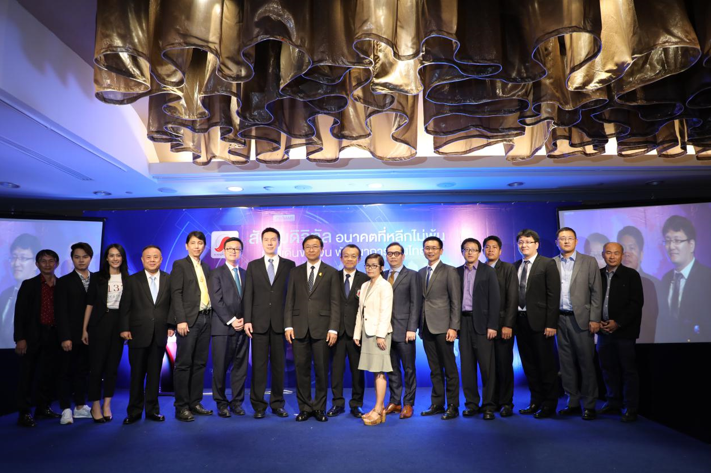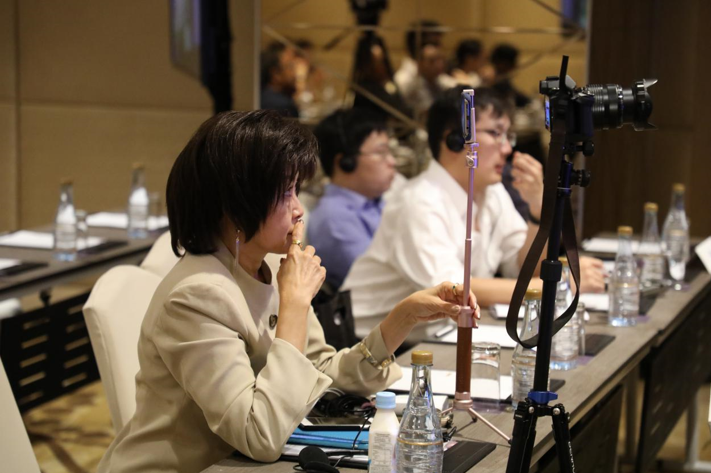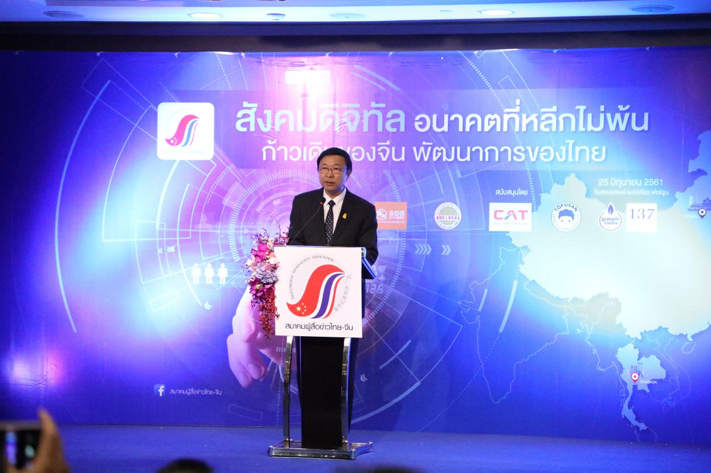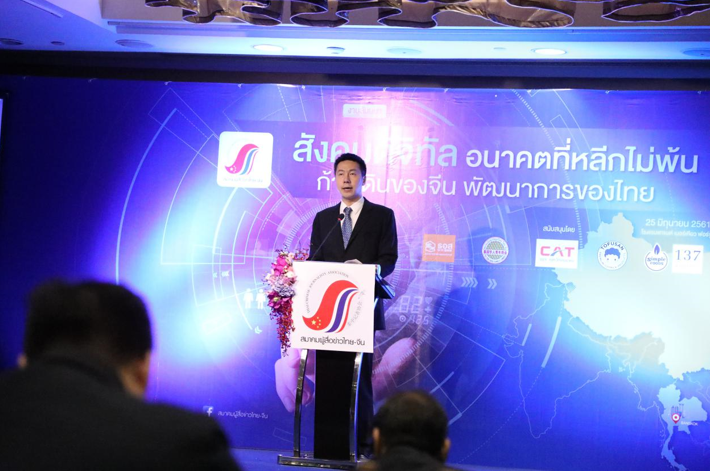
A group picture at the seminar. (Photos: Zhao Yipu/People's Daily)
Bangkok (People's Daily) - The seminar on status and development of the “digital society” was held on Monday in Bangkok, Thailand and focused on the current trends and characteristics of the digital transformation of society in Thailand and China. About 200 officials and businessmen from China and Thailand attended the seminar.

A participant listened carefully at the seminar.
Cash, credit cards and the other financial instruments are gradually being replaced by “digital payments”. It is obvious that the “digital society” is coming. The change will have a far-reaching impact on both individuals and companies. The phenomenon of a "digital society" has caused great concern from both Thai and Chinese communities. Thailand is in a rush to embrace the “digital society” and China has already been the leader of a "digital society".

Pichet Durongkaveroj, Minister of Digital Economy and Society of Thailand, gives a speech.
Pichet Durongkaveroj, Minister of Digital Economy and Society of Thailand, spoke on how Thailand develops the “digital economy” and how to give a hug to “digital society”. Pichet said that 90% of Thais have mobile phones, and everyone spends an average of more than three hours on the internet every day. In 2018, Thailand has a plan for five areas including digital infrastructure, digital talent, digital technology, digital government, and cyber security.
Pichet believes that the cooperation on “digital economy” between China and Thailand can get better because of the Belt and Road initiative. “China and Thailand can carry out digital cooperation in agriculture, tourism, and culture. Both the Chinese and Thai governments and the people of the two nations will benefit more in the future,” Pichet added.

Yang Xin, the Chinese embassy representative to Thailand, speaks.
Yang Xin, the Chinese embassy representative to Thailand, said that as the world’s second-largest economy, China’s digital economy has achieved tremendous development in the past decade. In 2017, it had reached 4.3 trillion U.S. dollars, and its growth rate has reached six times in 10 years. Digital development has also created a large number of jobs. In China, about 171 million people work in the digital economy, and 60 million people participate in the digital economy. The digital economy's contribution to China's GDP is 60 percent.
Yang said that China will continue to promote the “digital economy” in four ways. First, vigorously promote the upgrading of internet technologies. Second, the potential of digital economy in inland regions and underdeveloped regions should be tapped to promote the balanced development of the digital economy. Third, promote the construction of laws and regulations for the digital economy. Fourth, accelerate the development of digital talent.
“In recent years, Thailand has taken a series of measures to develop the ‘digital economy’. Thailand's ‘digital economy’ has been the leader in Southeast Asia. Cooperation on ‘digital economy’ and ‘digital society’ between China and Thailand has developed well and many new results benefiting the two nations have been achieved,” Yang said.


